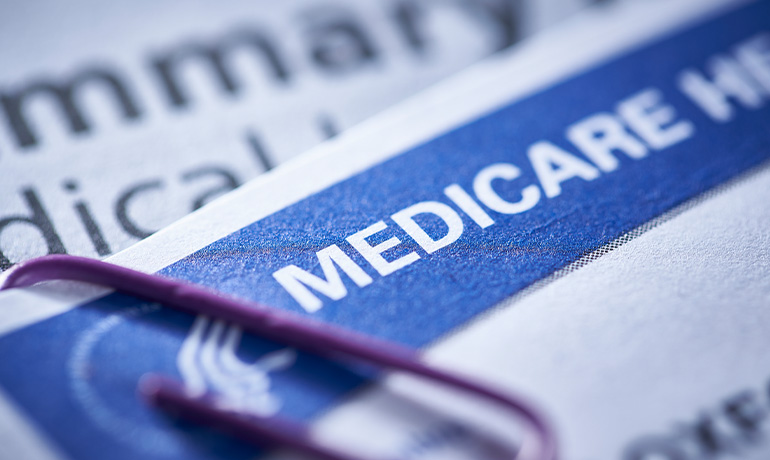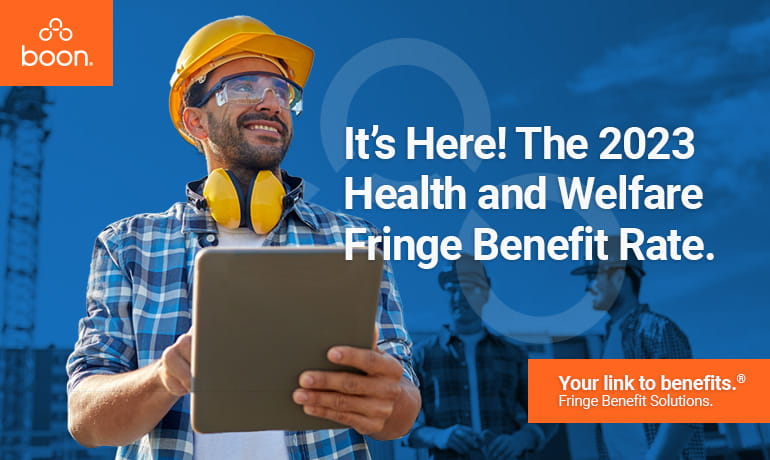The ongoing COVID-19 pandemic has made a lasting impression on our healthcare landscape. This time has shown that the value of healthcare benefits cannot be emphasized enough and businesses and governments are responding in turn. Most recently, the states of New York and New Jersey have adopted legislation to benefit airport workers, dubbed the Healthy Terminals Acts.
The Acts will boost wages and healthcare access for airport workers in both states, employed by the largest airports in the region – and some of the largest airports in the nation. Read on to learn more about the Healthy Terminals Acts and what to expect from these pieces of legislation!
What are the Healthy Terminals Acts?
New York Governor Andrew Cuomo signed the Healthy Terminals Act in March 2021. The Act provides that covered airport workers will be paid no less than the prevailing wage rate and a benefits supplement rate of at least $4.54 per hour. This benefit supplement rate would be put towards the cost of minimum essential coverage under an employer-sponsored benefit plan, as defined by the Affordable Care Act. The New York Healthy Terminals Act requires the employer to enroll each covered employee in the employer-sponsored health insurance. Effective immediately, on July 1, 2021, the commissioner may begin investigating violations of the Act.
Following closely behind in April 2021, New Jersey Governor Philip Murphy signed the New Jersey equivalent of the Healthy Terminals Act. The New Jersey version mirrors its New York predecessor by also ensuring that airport workers will be paid no less than the prevailing wage. New Jersey’s Healthy Terminals Act goes into effect on September 1, 2021, at which point every covered airport employer must pay a covered employee the applicable prevailing wage. In terms of benefits, the commissioner shall designate the supplemental benefits rate and paid leave requirements on August 1, 2021 with plans to update on each August 1 thereafter.
Healthcare Benefits and Covered Workers under the Healthy Terminals Acts.
The Healthy Terminals Acts in New Jersey and New York are quite expansive in terms of the individuals that they cover. Both states apply the laws to airport workers that spend at least one half of the workweek at a covered airport location. The airport businesses impacted by the Healthy Terminals Acts include air transportation support firms hired by the airlines (such as baggage handling and cabin cleaning services) and retail and restaurant businesses that lease space within the terminals.
In New York, a “covered worker” is defined as a person that performs work at the JFK or LaGuardia airports, providing cleaning services, security services, baggage handling, catering, and any airport retail and lounge services. In order for employees to be covered, an employee must have worked at least 30 hours per week as of December 30, 2020.
New Jersey’s version of the Healthy Terminals Act defines a “covered airport worker or related location worker” as any person who performs work at a “covered airport or related location.” The New Jersey definition also expands the scope of the law to include any person who performs work related to the preparation of food for consumption on airlines departing from the Newark Liberty International Airport and the New York Liberty International Train Station.
The Healthy Terminals Acts have a vast reach and the legislation is expected to impact roughly 34,533 minimum wage workers in New York and New Jersey. The estimated annual cost of the Healthy Terminals Act, according the independent research organization Economic Roundtable, will be approximately $85,558,033 for employers at New Jersey’s Newark International Airport and $207,409,299 for employers at New York’s JFK and LaGuardia International Airports.
Certification Requirements and Penalties for Non-Compliance.
In addition to the Healthy Terminals Act legislation, New York has adopted a certification requirement. The requirement mandates covered employers to submit a sworn statement certifying the total number of workers employed that meet the covered worker definitions discussed previously. The sworn certification must calculate 80 percent of the total number of covered employees as of December 30, 2020, which becomes a benchmark for that employer.
Both New York and New Jersey exclude individuals employed in executive, administrative, or professional roles as defined by the Fair Labor Standards Act. The two states also provide clarification on penalties for non-compliance. In New York, an employer found in violation of the law will incur a civil penalty of “not more than $10,000 for the first such violation within six years, not more than $20,000 for a second violation within six years and not more than $50,000 for a third or subsequent violation within six years.” In New Jersey, it states that “the commissioner is authorized to assess and collect administrative penalties, up to a maximum of $250 for a first violation and up to a maximum of $500 for each subsequent violation.”
New Compliance Challenges Merit Innovative Solutions.
Companies turn to us when they need adaptable, compliant solutions that deliver on easy administration and affordability. The COVID-19 pandemic reinforced the importance of employee health and access to benefits. Just as the Healthy Terminals Acts have responded to that need, our employee benefit solutions have adapted to the needs of our clients and their valued workers.
Learn more about our healthcare solutions. Click here.
Keep Up with Boon!
Have you heard of our bimonthly newsletter? It’s your source for the latest in industry updates and all things Boon! Sign-up and get the highlights, direct to your inbox.
Never miss a blog post and also keep up with Boon on Facebook, Twitter, and LinkedIn.


